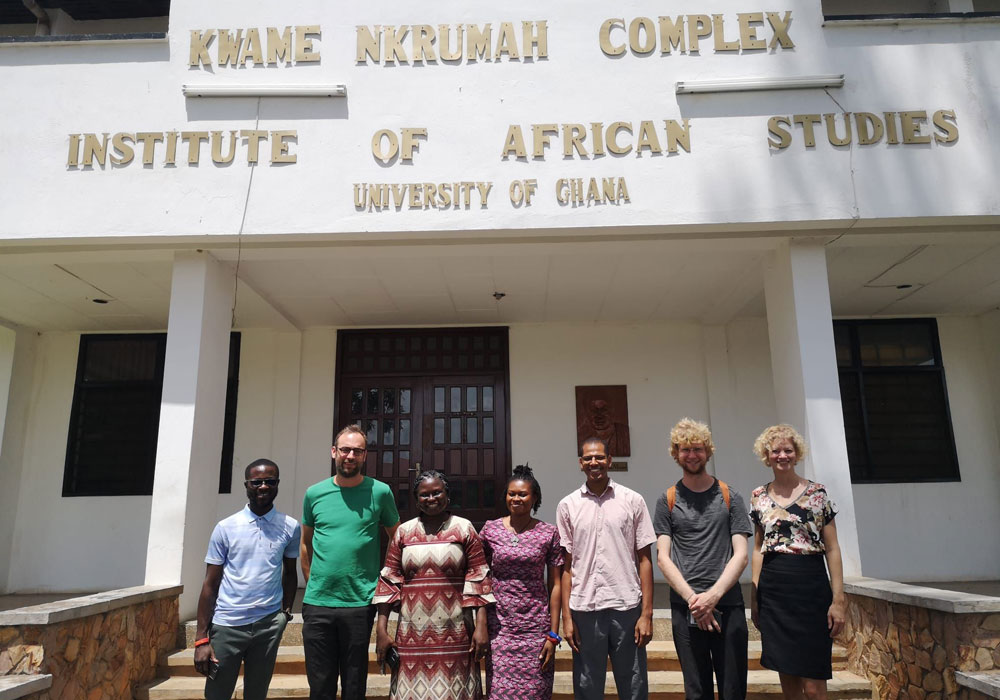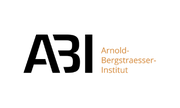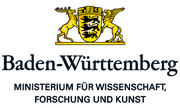ASA project "Decolonise Universities" successfully completed
f.l.t.r. Abdul Karim Ibrahim, Moritz Haupt, Irene Appeaning Addo, Akua Agyapong, Felix Ampoma, Vincent Stein, Frederike Wagner; ©Private
How is knowledge production at universities still colonised today? In the project "Decolonize Universities: Participating in approaches to the decolonisation of knowledge production", four students looked at the process of decolonisation at two universities, the University of Ghana and the University of Freiburg.
In Freiburg, Abdul Karim Ibrahim and Harriet Nana Akua Agyapong (both University of Ghana), Vincent Stein (University of Freiburg) and Felix Ampoma (University of Bayreuth) took a decolonial look at the curricula of Bachelor's and Master's degree programmes in social science disciplines. They spoke to numerous students and lecturers at the University of Freiburg and looked at the curricula of selected seminars at both universities. They were also involved in organising the SDG University Day "De-Colonizing Partnerships". A recommendation paper with suggestions for the University of Freiburg and teaching staff will be published shortly.
In Accra, the student team broadened their view and adopted a historical perspective. Through numerous interviews and intensive research in the university archives, they traced the efforts to decolonise the University of Ghana, which was founded in 1948 as the University College of the Gold Coast while it was still under British colonial rule. The Institute of African Studies (IAS) at the UG, which was founded in 1961 as one of the first centres for African studies on the continent by the then President of Ghana, Kwame Nkrumah, played a central role.
The project is part of the Engagement Global ASA University Programme. The programme for development policy work and study visits abroad, which has existed since 1960, has also been available in cooperation with universities since 2018. The Africa Centre for Transregional Research (ACT), the Arnold Bergstraesser Institute (ABI) Freiburg and the Institute of African Studies (IAS) at the University of Ghana organised the project.







